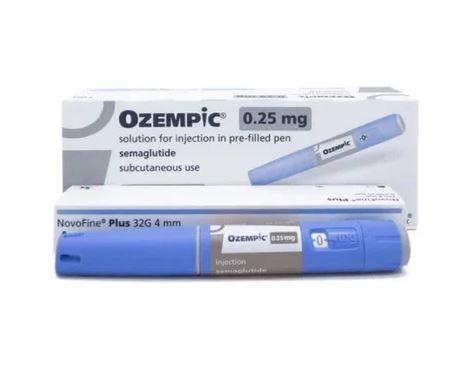What is Sobriety?
What is the best definition of sobriety? Sobriety indicates not being under the influence of drugs or alcohol. Achieving sobriety means having no trace of alcohol or drugs in your system. It is the natural state we are born in. Being sober is the status of being in a substance-free state.
Sobriety Definition for Treatment
Sobriety means achieving independence from alcohol as an ultimate goal in a treatment setting. Simply abstaining from alcohol is not enough to be considered genuinely sober. It is vital to sustain abstinence and overcome the residual effects of alcohol consumption, also known as post-acute withdrawal syndrome (PAWS). Someone who may abstain but still has a latent desire to drink is called a “dry drunk.” There might be subconscious motivations to resume alcohol consumption, but various factors like medical or legal concerns prevent it.
Achieving Sobriety Meaning
Achieving sobriety is often associated with complete abstinence from substances. However, another perspective emphasizes the importance of the recovery process and developing coping mechanisms for long-term health and well-being. While the goal is total abstinence, setbacks are a common occurrence. It’s estimated that up to 80% of individuals who achieve long-term sobriety have experienced at least one relapse. (Moos RH, Moos BS, 2006) Recognizing that many people face numerous setbacks before finding lasting recovery is essential. While good intentions are a starting point, avoiding relapse requires more than willpower. Read on for more on how to achieve sobriety.
Why Does Sobriety’s Meaning Matter?
The differentiation between abstinence and abuse holds significant importance in addiction treatment. It highlights the vision that sobriety involves a continuous and dedicated effort to address the underlying issues connected with drinking. It surpasses a simple self-imposed mandate to cease drinking. Instead, individuals can effectively manage addiction disease and maintain their sobriety through comprehensive treatment and therapy.
Mere abstinence, on its own, fails to address the root causes of alcohol abuse and addiction, as well as the triggers and often unhealthy coping mechanisms that may be at play. To facilitate lasting recovery, many substance abuse treatment centers offer diverse programs tailored to individuals with substance use disorders. Whether the struggle is with alcohol or drug addiction, a combination of medically assisted detoxification and therapeutic approaches can play a pivotal role in establishing and sustaining recovery.
Top 10 Sobriety Tips
- Avoid places or situations where drugs or alcohol are present.
- Surround yourself with supportive and understanding friends and family.
- Attend support group meetings or counseling sessions regularly.
- Find healthy and enjoyable activities to replace the time previously spent on substance use.
- Practice stress-reducing techniques such as meditation or exercise.
- When tempted or overwhelmed, reach out for help and lean on your support network.
- Celebrate your milestones and progress in your journey towards abstinence.
- Create a daily routine to stay focused and maintain consistency in your efforts.
- Stay educated about addiction and the benefits of staying abstinent.
- Keep a journal to track your progress and reflect on your experiences.
Recovery vs Sobriety
As it is common knowledge by now, addiction is a mental issue that the National Institute on Drug Abuse (NIDA) defines as “a chronic, relapsing condition defined by compulsive drug seeking and use despite adverse consequences. It is a brain disorder because it involves functional changes to brain circuits responsible for reward, stress, and self-control. Those changes may last long after an individual stops taking drugs.”
Those functional changes to the brain and its long-lasting nature, even after the person quits using and drinking, distinguish the difference between sobriety vs recovery.
The state of sobriety is passive and momentary, while recovery is the active process of staying sober. One that requires diligence, constant attention to the person’s state of mind, situational awareness, and ongoing work on addressing the underlying cause of the initial substance use disorder.
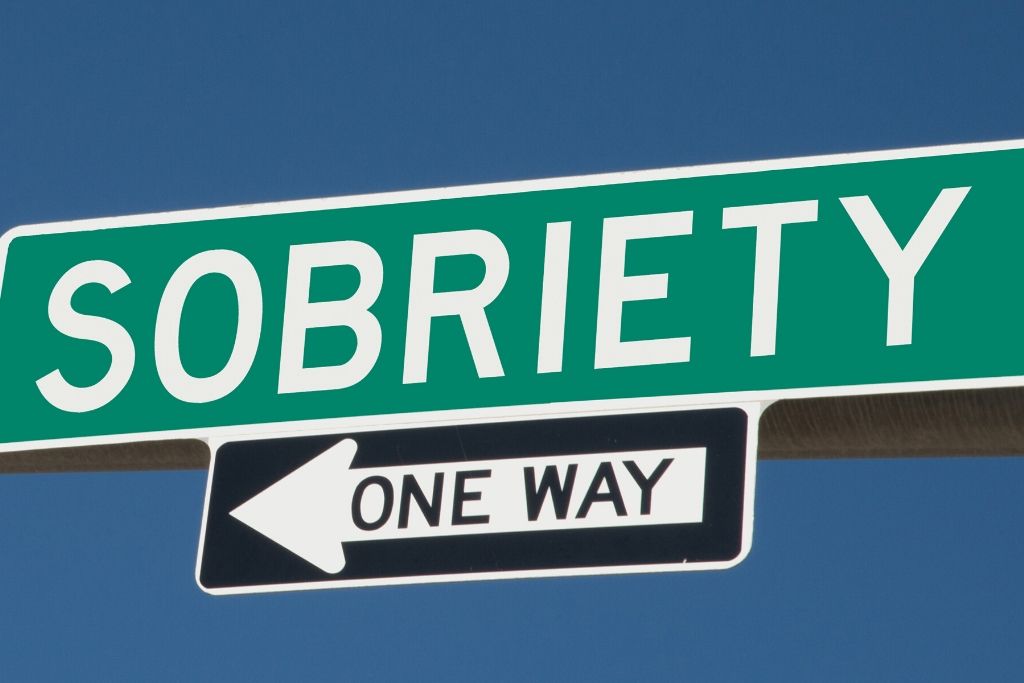
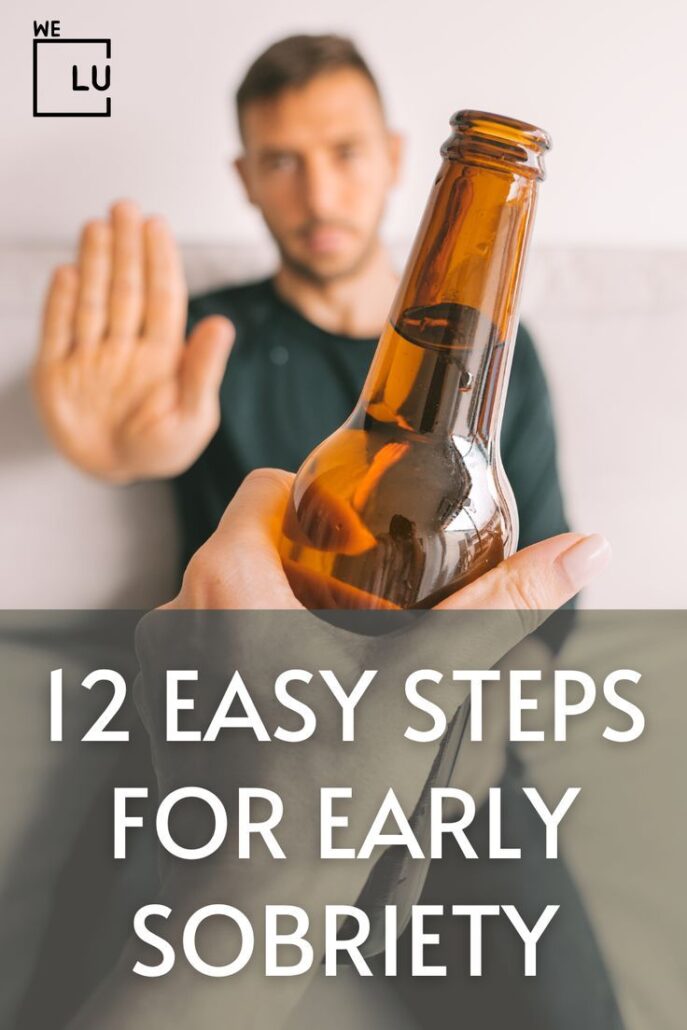
Table of Contents
Learn More:
- Tips for Staying Sober, Sobriety Strategies
- How To Sober Up Fast: Top 12 Effective Ways & Tips. How Long Does It Take To Sober Up From Alcohol, Weed…
- Blood Alcohol Concentration BAC Calculator. Determine Your BAC Level. BAC for Women vs. Men BAC Levels. How to Manage BAC Level?
- Free Alcohol And Breastfeeding Calculator. When Can I Breastfeed After Drinking Calculator? Learn When Is It Safe To Drink When Breastfeeding?
- What is Emotional Sobriety? How To Understand & Practice It
- Tips for Staying Sober, Sobriety Strategies
- Sobriety Prayer
- How to Sober Up From Weed? Effective Rehab Treatments
- Top 5 Ideas For Celebrating Sobriety
- 101 Sobriety Quotes To Inspire You For Effective Recovery
- The Benefits of Drug & Alcohol Counseling, Drug Counseling for Addiction
- Accredited Addiction Rehab Detox Treatment Centers Network. Awarded Joint Commission, CARF & Expertise Accreditation.
- We Level Up NJ Detox Programs
What is Abstinence?
Abstinence refers to voluntarily refraining from or abstaining from using certain substances, typically alcohol or drugs. It is a conscious decision to avoid consuming these substances to maintain a sober and healthy lifestyle. Abstinence is often a fundamental principle in addiction recovery, as it helps individuals avoid relapse and work towards maintaining a substance-free life.
Taking it one day at a time and being patient with yourself is essential during your abstinence journey.
Sobriety Calculator Tools
A sobriety calculator can help you estimate how long it would take for alcohol to leave your system entirely. While an Alcohol BreastFeeding Calculator can help you determine the safety of consuming alcohol while breastfeeding. This calculator considers various factors, such as the mother’s weight, the amount of alcohol consumed, and the time since the last drink. It estimates the time it would take for the alcohol to be eliminated from breast milk.
Use our Sobriety Counter / Sobriety App to track and monitor your progress in abstaining from alcohol, drugs, or any addictive behavior. Keep track of their sober days, hours, minutes, and celebrate your sobriety success.
World-class, Accredited, 5-Star Reviewed, Effective Addiction & Mental Health Programs. Complete Behavioral Health Inpatient Rehab, Detox plus Co-occuring Disorders Therapy.
CALL (877) 378-4154End the Addiction Pain. End the Emotional Rollercoaster. Get Your Life Back. Start Drug, Alcohol & Dual Diagnosis Mental Health Treatment Now. Get Free No-obligation Guidance by Substance Abuse Specialists Who Understand Addiction & Mental Health Recovery & Know How to Help.
Finding Recovery Support Program for Sobriety
Achieving sobriety means being free from the effects of mind-altering substances. While this can include a range of substances, recovery support programs focus on specific ones like alcohol, marijuana, opiates, or tobacco. The phrase “clean and sober” is commonly used to describe an extended period without any alcohol or drugs in the body.
Recovering from addiction can begin in various ways, such as attending rehab, seeking help from a detox center, or relying on a sober companion. However, finding the right recovery support program can be challenging. Searching online may lead to confusion, considering the wide range of options available. Fortunately, various resources are available across the United States to guide individuals on their journey to recovery.
In addition to traditional programs, alcoholics can utilize books, podcasts, and online resources to support their recovery. We Level Up New Jersey offers sobriety rehab and detox programs. Speak with a sobriety advocate 24/7 and get all your questions answered. Your call is private, confidential and without any obligation.
Women for Sobriety
Women for Sobriety (WFS) is a self-help organization that supports women in their journey to achieve and maintain sobriety. Founded in 1975 by Jean Kirkpatrick, WFS aims to provide a unique and alternative approach to recovery for women, addressing the specific needs and challenges they may face related to addiction.
The program is based on the belief that recovery is possible through developing a new way of thinking and living, empowering women to take control of their lives and find strength within themselves. The WFS program focuses on positive reinforcement, self-acceptance, and personal growth.
WFS offers various tools and resources to assist women in their recovery, including:
- The “New Life” program is a series of 13 statements that help women develop coping strategies, build self-esteem, and establish positive habits.
- Online support: WFS provides online forums and chat rooms where women can connect with others working towards sobriety.
- In-person meetings: WFS encourages the formation of local support groups where women can meet face-to-face for sharing experiences, provide support, and offer encouragement.
- Literature and educational materials: WFS offers books, pamphlets, and other resources that guide and support women’s sobriety journey.
Women for Sobriety aims to create a safe and supportive environment for women to achieve recovery and build a life free from addiction. It promotes a holistic approach that addresses sobriety’s physical, emotional, and spiritual aspects.
Top 10 Sobriety Quotes
Sobriety quotes provide inspiration and support for those seeking sobriety or maintaining their sobriety. They can serve as a reminder of the positive changes from living a sober life and offer motivation during challenging times. Here are a few sobriety quotes:
- “The best time to plant a tree was 20 years ago. The second best time is now.” – Chinese Proverb
- “Sobriety is not a destination; it’s a journey.”
- “You don’t have to see the whole staircase. Just take the first step.” – Martin Luther King Jr.
- “Sobriety is a love affair with life.”
- “It’s not the absence of alcohol that brings happiness; it’s the presence of a life well-lived.”
- “One day at a time.”
- “Recovery is about progress, not perfection.”
- “Sobriety is a superpower.”
- “Every moment is a fresh beginning.”
- “The only time alcohol should be in your life is when you use it to clean wounds.”
Everyone’s journey is unique, and different quotes about sobriety may resonate with different people. Read our popular, entertaining, and uplifting sobriety quotes.
Fastest Way To Sober Up Infographic
There are several urgent reasons why someone may need to sober up quickly. First and foremost, if they are under the influence of drugs or alcohol and need to operate a vehicle or perform tasks that require alertness, sobriety is essential to prevent accidents and potential harm to themselves and others.
Moreover, in emergencies, being sober allows for clear thinking and better decision-making, ensuring they can respond appropriately and responsibly. Rapidly achieving sobriety may also be necessary for individuals with essential responsibilities or commitments that demand their full attention and focus, as being under the influence can hinder their ability to perform effectively.
Embed the below “Fastest Way To Sober Up” Infographic to your Website. This infographic is provided by the We Level Up addiction treatment center team. To use the below infographics, you agree to link back and attribute its source and owner at https://welevelupnj.com/addiction/what-is-sobriety/
“Fastest Way To Sober Up” Infographic image link: https://welevelupnj.com/wp-content/uploads/2021/12/What-is-Sobriety.jpg
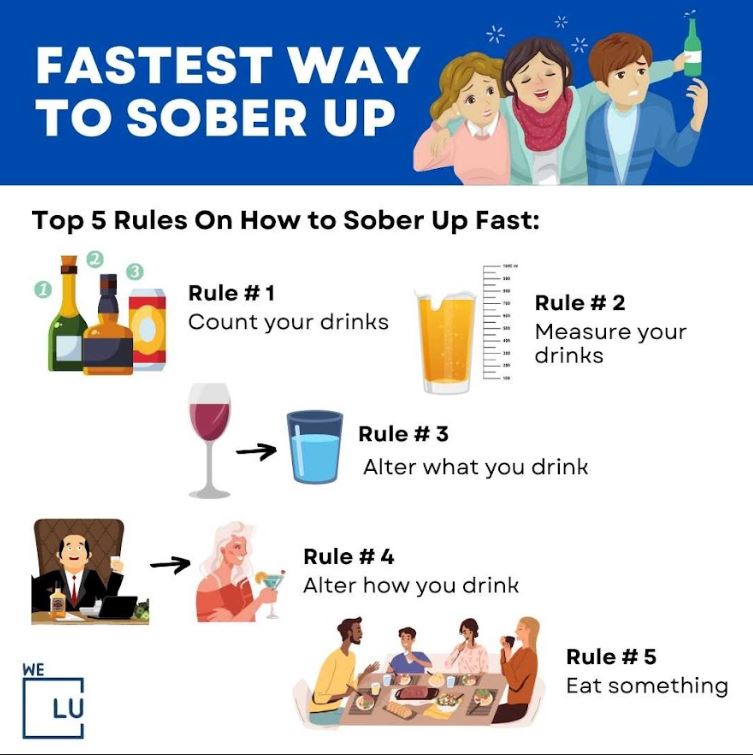
What is a Field Sobriety Test? Fact Sheet
What is a Sobriety Test?
A sobriety test, also known as a field sobriety test, is a set of standardized physical and cognitive exercises administered by law enforcement officers to assess a person’s level of impairment due to alcohol or drug use. A sobriety test aims to determine if the individual can operate a vehicle safely. Standard sobriety tests include tasks like walking in a straight line, balancing on one leg, and following a moving object with the eyes. The results of these tests help law enforcement determine whether there is probable cause to conduct further tests, such as a breathalyzer or blood test, to confirm the presence of alcohol or drugs in the individual’s system.
What is The Definition of Sobriety?
What is sobriety meaning? In scientific terms, sobriety is characterized by the absence of psychoactive substances in the body, particularly alcohol and drugs. It is a condition in which the influence of these substances does not impair an individual’s cognitive and physical functions.
From a scientific perspective, sobriety can be objectively measured through various methods, such as blood tests or breathalyzer readings, to assess the absence or presence of alcohol or drugs in the body. The concept of sobriety is crucial in research on substance use disorders, addiction treatment, and public health initiatives to reduce the negative consequences of substance abuse.
Sobriety Chips vs Sobriety Coins
Sobriety chips and sobriety coins are physical tokens used to commemorate milestones and achievements in sobriety. They are often given as symbols of recognition and encouragement to individuals recovering from addiction.
Sobriety chips, alcoholics anonymous (AA) chips or medallions are typically used in 12-step recovery programs such as Alcoholics Anonymous. These chips are usually made of plastic or metal and come in different colors to represent different lengths of sobriety. For example, a common tradition in AA is to award a white chip for 24 hours of sobriety, followed by chips of increasing colors (e.g., silver, gold) for one month, three months, six months, and so on. These chips serve as physical reminders of an individual’s commitment to sobriety and provide a tangible representation of their progress.
On the other hand, sobriety coins, also known as recovery or sober coins, are often used outside of 12-step programs and are more diverse in design and symbolism. These coins can come in various shapes, sizes, and materials, including metal, ceramic, or wood. Sobriety coins can represent different lengths of sobriety, milestones, or achievements specific to an individual’s recovery journey. Some people may personalize their sobriety coins with engravings or custom designs that hold personal meaning to them.
Ultimately, the choice between using sobriety chips or sobriety coins depends on personal preference and the recovery program or support network an individual is connected to. Both serve as tangible reminders of progress, encourage commitment to sobriety, and signify the importance of celebrating milestones in the recovery journey.
Sobriety Symbol
The sobriety symbol is a powerful emblem representing the commitment to living a sober life and overcoming addiction. It is commonly used to signify strength, hope, and resilience in the face of challenges related to substance abuse. The symbol varies and can take different forms, including:
- The Circle: A simple circle represents unity, wholeness, and the recovery journey. It signifies the continuous and ongoing commitment to sobriety.
- The Triangle: A triangle often represents the three pillars of recovery: unity, recovery, and service. It symbolizes the spiritual, mental, and physical well-being essential to sobriety.
- The Serenity Prayer: The Serenity Prayer is a well-known prayer used in recovery programs such as Alcoholics Anonymous (AA). It begins with the words, “God, grant me the serenity to accept the things I cannot change, courage to change the things I can, and wisdom to know the difference.” The prayer serves as a reminder of acceptance, serenity, and personal growth in recovery.
- The Recovery Circle and Triangle: The combined circle and triangle symbol represents the unity, recovery, and service foundational to 12-step programs like AA. It signifies the strength derived from the support network and fellowship of like-minded individuals in recovery.
The choice of a sobriety symbol can be a personal one, and individuals in recovery may resonate with different symbols that hold meaning to them. Ultimately, the symbol represents an individual’s commitment to sobriety, reminding them of their progress and the positive changes they have made.
Sobriety Test Meaning
The term “sobriety test” refers to a set of standardized physical and cognitive assessments conducted by law enforcement officers to evaluate a person’s level of impairment due to alcohol or drug use.
These tests are administered to determine if an individual is sober enough to operate a vehicle safely. The sobriety test results can influence further actions, such as additional tests to confirm the presence of alcohol or drugs in the person’s system and potential legal consequences for driving under the influence.
Sobriety Date Meaning
The term “sobriety date” refers to the specific date an individual begins abstaining from alcohol or drugs. It holds significant personal importance as it marks the starting point of their commitment to a sober and substance-free lifestyle.
The sobriety date is often celebrated as a milestone in recovery. It serves as a reminder of the progress toward maintaining a healthier and more fulfilling life without the influence of addictive substances.
Sobriety Gifts
Sobriety gifts are thoughtful presents given to individuals celebrating milestones in their sobriety or showing support and encouragement during their recovery journey. These gifts can be meaningful reminders of progress, personal growth, and the commitment to sober life. Here are some ideas for sobriety gifts:
- Sobriety milestone keychains or keyrings: These small, portable tokens can be engraved with milestone dates or sobriety slogans to carry wherever they go.
- Sobriety-themed jewelry: Necklaces, bracelets, or rings featuring sobriety-related symbols or meaningful quotes can be a beautiful and wearable reminder of one’s commitment to sobriety.
- Sobriety affirmation cards: A set of affirmation cards with positive affirmations related to sobriety and recovery can provide daily encouragement and motivation.
- Sobriety-themed art or decor: A piece of artwork or wall hanging with sobriety-related quotes or symbols can serve as a visual reminder of a person’s journey and commitment to sobriety.
- Inspirational books or recovery literature: Books that offer guidance, encouragement, and personal stories of triumph over addiction are thoughtful gifts for those in recovery.
- Sobriety-themed clothing: T-shirts, hoodies, or hats with sobriety-related slogans or symbols can help individuals proudly display their commitment to living a sober lifestyle.
- Self-care items: Self-care is an essential aspect of recovery. Gift baskets or boxes containing bath products, scented candles, journals, relaxation tools, or stress relief toys can promote self-care and overall well-being.
- Sobriety-themed mugs or drinkware: Personalized mugs or drinkware with sobriety quotes or messages can remind someone of the positive impact of sobriety every time they enjoy a hot beverage.
Remember that the most meaningful gifts often show understanding, empathy, and support for someone’s journey toward sobriety. Choose a gift that resonates with the individual’s interests, personality, and goals in recovery.

Get Your Life Back
Find Hope & Recovery. Get Safe Comfortable Detox, Addiction Rehab & Mental Health Dual Diagnosis High-Quality Care at the We Level Up Treatment Centers Network.
Hotline (877) 378-4154Sobriety Statistics
Studies have shown that the longer an individual remains sober, the greater their chances of maintaining long-term sobriety. After five years of sobriety, the risk of relapse significantly decreases.
However, it’s essential to recognize that each person’s journey to sobriety is unique, and success rates can be influenced by various factors, including co-occurring mental health disorders, the level of support, and access to treatment resources. Recovery is a personal process, and many individuals maintain sobriety through treatment, support networks, and personal determination.
60%
The relapse rate for substance use disorders is around 40-60%.
Source: NIDA
30%
About 30% of those who attend AA meetings maintain continuous sobriety, while 10% maintain sobriety with some lapses.
Source: AA
60%
Some studies have reported that treatment programs can lead to successful outcomes for 40-60% of participants.
Source: NCBI
Top 10 Tips to Help You Stay Sober
What does sobriety mean? Embracing sobriety can open the door to personal growth, improved relationships, and a sense of empowerment in overcoming the challenges associated with addiction. Here are the top 10 tips to help you stay sober:
- Stay Out of Risky Situations
This can only mean that you don’t spend time with individuals you used to use drugs with or go someplace you used to drink. For instance, you might take a new way home from work to keep from going past your favorite old hangout.
- Build a Support Network
Rely on close friends and family members for support, even if your relationships aren’t what they used to be. Consider family therapy or counseling to deal with family and other personal issues.
When attending a social event like a party or wedding, consider inviting a few sober friends as your plus-one. This can give you a supportive and understanding presence, making the experience more enjoyable and less challenging. Moreover, stay connected with your sponsor, and feel free to call them if you ever feel uncomfortable or anxious during the event. This support network can be a valuable resource to help you navigate potentially triggering situations successfully.
- Find an Activity That Means Something to You
Consider beginning an exercise regimen to experience the uplifting effects of endorphins, the brain’s natural feel-good chemicals. Alternatively, dedicating time to volunteer for a noble cause, such as a children’s hospital or an animal shelter, could be something you like. Embracing any of these endeavors will introduce you to new and exciting experiences and connect you with like-minded individuals who share your interests.
- Learn to Manage Stress
During your recovery journey, it’s natural to encounter moments of stress, ranging from significant life events like job loss to minor issues like being late for appointments. When faced with such challenges, having a sober loved one or friend you can confide in for support and comfort is essential.
To navigate difficult times, keeping a flexible schedule that allows you to attend group meetings and engage in activities that offer assistance and encouragement is beneficial.
Moreover, prioritizing your physical well-being can contribute significantly to maintaining a positive and healthy mindset during recovery. Ensure you allocate time for regular exercise, consume a balanced diet, and get enough restorative sleep to support your overall well-being.
- Find a Peer Support Group
Support networks like Alcoholics Anonymous (AA) or Narcotics Anonymous (NA) offer another avenue to build a solid support system. Exploring various meetings within these groups allows you to find the one that best suits your needs and preferences. By participating in these organizations, you can connect with like-minded people who understand your struggles and can provide encouragement and assistance on your journey to recovery.
- Manage Your Cravings
Although these cravings usually endure for only 15 to 30 minutes, resisting them can be challenging. To counteract these urges, consider employing the following strategies:
- Embrace a mantra: Adopt a reassuring mantra, such as “I am stronger than this, and it will pass,” to reinforce your resolve and help you navigate the craving’s intensity.
- Engage in sensory substitutes: Utilize alternatives like chewing gum or engaging in other sensory activities to redirect your focus away from the craving, providing relief.
- Stay occupied and active: Keeping yourself busy with tasks and activities effectively diverts your attention from cravings. Productive engagement decreases the likelihood of giving in to the urges.
- Maintain a gratitude journal: Some individuals find solace in documenting things that bring joy and expressing gratitude in a journal. During challenging moments, revisiting these entries can remind you of positivity, offering motivation and support for your recovery journey.
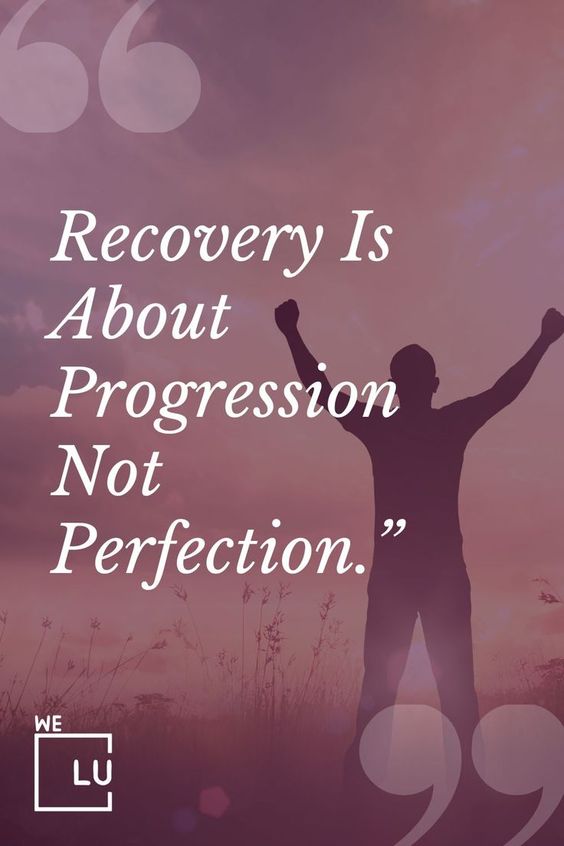
- Learn to Relax
When experiencing tension, individuals often gravitate towards familiar habits and behaviors. Conversely, relaxation opens one up to embracing new experiences and ideas. Recognizing that different approaches work for others is crucial in navigating life’s challenges. You might try:
- Meditation.
- Yoga.
- Reading.
- A nature walk.
- A massage.
- A bath.
- Music.
- Breathing exercises.
- Prepare Your Story
Prepare a clear response in case someone inquires about your sobriety. While you may attempt to sidestep the conversation, having a ready answer is beneficial if that’s not possible. If the question comes from close acquaintances, it’s okay to be honest and state that alcohol or drugs became problematic for you, and you have chosen to abstain from them for your well-being.
However, suppose you’re unfamiliar with the person. A simple reply like “I need to wake up early tomorrow” or “I quit for health reasons” should suffice without delving into further details. Remember, it’s essential to feel comfortable with your response and know you have the right to set boundaries in these situations.
- Manage Physical Pain
If you have recently undergone surgery or had an injury, your doctor will exercise caution when prescribing pain medication, as certain drugs may increase the risk of relapse. Instead, discuss non-medical pain management options, such as acupuncture or massage therapy, with your doctor. These alternative approaches can effectively alleviate discomfort without the potential risks associated with certain medications.
- Be the Designated Driver
This will always give you a quick and easy explanation for why you aren’t drinking. It also offers you a sense of purpose to help you stay focused.
Bonus Tip: Try a Mocktail
In social gatherings where alcohol is prevalent, holding a drink in your hand may help you feel more at ease, and it might deter others from asking questions. A mocktail, which resembles a regular cocktail but contains no alcohol, is an excellent option. Others won’t be able to discern the difference simply by looking at your glass, allowing you to enjoy the event without feeling pressured or explaining your choice.
Get Help. Get Better. Get Your Life Back.
Searching for Accredited Drug & Alcohol Rehab Centers Near You? Or Mental Health Support?
Even if you have failed previously, relapsed, or are in a difficult crisis, we stand ready to support you. Our trusted behavioral health specialists will not give up on you. Call us when you feel ready or want someone to speak to about therapy alternatives to change your life. Even if we cannot assist you, we will lead you wherever you can get support. There is no obligation. Call our hotline today.
FREE Addiction Hotline – Call 24/7What is Emotional Sobriety?
Emotional sobriety constitutes a fundamental pillar in the journey of alcoholism and drug addiction recovery. Its essence lies in the understanding that individuals grappling with alcoholism and other addictions must acquire the skills to manage and navigate negative emotions effectively. By doing so, they can avoid succumbing to cravings, discomfort, and the potential trap of relapse. This process of mastering emotional sobriety is an ongoing commitment that necessitates the development of an entirely new perspective on life’s challenges and hardships.

Since no two individuals are alike, everyone experiences recovery a bit differently. However, emotional sobriety generally means:
- Accepting the present as it is.
- Building a healthy, emotionally balanced life.
- Seeing struggle and grief as natural parts of life offers personal growth opportunities.
- Not letting other people’s limited perceptions or expectations define your self-esteem or negatively impact your behavior.
- Refusing to dwell on the past.
One crucial but often overlooked part of the healing and recovery journey is the need for emotional sobriety. Since it’s common for individuals with substance use disorders to turn to alcohol and drugs to self-medicate their emotional pain, learning to process emotions healthily is essential in preventing relapse.
First-class Facilities & Amenities
World-class High-Quality Addiction & Mental Health Rehabilitation Treatment
Rehab Centers TourRenowned Addiction Centers. Serene Private Facilities. Inpatient rehab programs vary.
Addiction Helpline (877) 378-4154Proven recovery success experience, backed by a Team w/ History of:
15+
Years of Unified Experience
100s
5-Star Reviews Across Our Centers
10K
Recovery Success Stories Across Our Network
- Low Patient to Therapist Ratio
- Onsite Medical Detox Center
- Comprehensive Dual-Diagnosis Treatment
- Complimentary Family & Alumni Programs
- Coaching, Recovery & Personal Development Events
Achieve Long-Term Sobriety with We Level Up New Jersey Treatment Team
The best way to understand the sobriety definition is to identify how to achieve it. Since sobriety takes commitment and effort, there are options for achieving it.
Deciding you want to change your life and drop the addiction that controls it is, quite frankly, life-changing. You’ll look back at admitting the need and want to live a life you’re in command of as a pivotal moment. That’s when the voyage toward sobriety starts. To accomplish it in the literal sense, you’ll need to undergo a detox which is your body’s natural process of freeing itself of the chemicals you’ve been putting in, be it drugs or alcohol.
Doing this at a treatment center is advised, as detoxification can lead to potentially severe withdrawal symptoms. Your mind and body have grown accustomed to performing with alcohol or drugs. Stop taking them, and it throws your system out of whack. 24/7 attention and care guarantee you get through them as comfortably and safely as possible.
However, since you haven’t worked through the root issues that led you to take substances, your sobriety is quite fragile, and any problem or inconvenience that surfaces that you’re not ready for, small or big, can trigger a relapse. That’s where the dynamic work of recovery comes in to support and sustain your newly won sobriety.

Depending on your addiction and its seriousness, it’s highly recommended that you enroll in some substance abuse treatment since medically-assisted detox isn’t a solution by itself. For heavier alcohol and drug addictions, polydrug use disorder, and co-occurring addiction and mental health issues, inpatient care will likely be more effective. Rest assured, though, no matter which rehab facility you choose, each person is assessed individually, and recommendations are made according to that.
Once you finish rehab, participating in aftercare is how you preserve that sobriety you’ve worked so hard to attain. That includes support groups like AA, NA, alumni recovery groups, and sober living homes.
If you’re embarking on your journey to recovery, it’s crucial to understand the meaning of sobriety. Why not seek this knowledge in a supportive environment with access to medical professionals? For those searching for long-term solutions to maintain sobriety, the alcohol rehab treatment at We Level Up NJ could be a valuable resource. Accredited detox and rehab facilities can provide a haven for individuals with substance use disorders. Take the first step towards sobriety at our national treatment destination and contact We Level Up NJ today.
World-class, Accredited, 5-Star Reviewed, Effective Addiction & Mental Health Programs. Complete Behavioral Health Inpatient Rehab, Detox plus Co-occuring Disorders Therapy.
CALL (877) 378-4154End the Addiction Pain. End the Emotional Rollercoaster. Get Your Life Back. Start Drug, Alcohol & Dual Diagnosis Mental Health Treatment Now. Get Free No-obligation Guidance by Substance Abuse Specialists Who Understand Addiction & Mental Health Recovery & Know How to Help.
Top 5 Meaning Sobriety FAQs
-
What is double digit sobriety?
Double digit sobriety typically refers to the number of years an individual has remained sober from drugs or alcohol. It means that the person has reached a milestone in their recovery journey and has surpassed ten years of sobriety. Achieving double-digit sobriety signifies long-term commitment and dedication to maintaining a substance-free lifestyle.
-
What is a sobriety checkpoint?
A sobriety checkpoint is a law enforcement tactic to reduce drunk driving incidents and ensure road safety. During a sobriety checkpoint, police officers set up a designated location on a roadway to stop and briefly screen drivers for signs of intoxication, such as alcohol or drug impairment.
-
What is a sobriety date?
A sobriety date is when an individual begins their abstinence from alcohol or drugs. It marks the starting point of their recovery, representing the day they decided to embrace a sober lifestyle.
-
What is emotional sobriety AA?
Emotional sobriety in AA (Alcoholics Anonymous) refers to achieving a state of emotional balance, resilience, and maturity in addition to physical sobriety from alcohol. It goes beyond abstaining from drinking and encompasses developing healthier emotional coping mechanisms, self-awareness, and the ability to handle life’s challenges without resorting to destructive behaviors or substances.
-
What is sobriety court?
Sobriety court, also known as drug court or DUI court, is a specialized court program designed to address the needs of individuals struggling with substance abuse and related offenses. Instead of traditional criminal proceedings, sobriety court offers a rehabilitative approach, combining judicial supervision, mandatory treatment, regular drug testing, and support services to help participants overcome addiction and reduce the likelihood of future criminal behavior.
How To Sober Up Fast. Top 12 Effective Ways & Tips How To Get Sober Fast.
Sobriety refers to abstaining from alcohol or drugs and embracing a substance-free lifestyle. To get sober, one must recognize the need for change, seek support from loved ones or professionals, and engage in appropriate treatment programs, such as rehabilitation and counseling. Maintaining a commitment to sobriety often involves ongoing dedication, self-awareness, and a supportive network to overcome challenges and build a healthier life.
If you or a loved one is struggling with alcohol or other substance use disorder(s), call for a FREE consultation 24/7.
Get FREE addiction treatment insurance check.
How To Sober Up Fast Video Transcript.
Welcome to the We Level Up treatment center video series. In today’s video, we will discuss How To Sober Up Fast. Uncover the Top 12 Effective Ways & Tips on How To Get Sober Fast.
The first and most crucial step to sobering up quickly is to know your limits and drink responsibly. Stay within your drinking limits and drink plenty of water between alcoholic beverages so you don’t get too quickly intoxicated. It’s also vital to pace yourself and space out your drinks over time so your body can process alcohol safely.
Additionally, eat something when you’re drinking that is high in protein. Protein can help absorb alcohol more quickly. People need time to recover from heavy alcohol or drug use before they can resume sober activities. Although there are specific short-term methods to enhance one’s physical and mental capabilities, it is nearly never possible to sober up rapidly. However, some people claim to employ meals that quickly sober you up. We look at the best quick sobering-up techniques.
Even if someone uses a technique to sober up fast by improving their alertness, they shouldn’t drive or make crucial judgments until the effects are gone. It may take hours for alcohol or other narcotics to be expelled from the body, depending on how much has been consumed. As a result, your strategy for how to get sober quickly should give you ample time to recover while supported by additional steps to get sober faster.
[Opening Scene: Bright and Positive Background Music]
Welcome to the Sobriety Guide! In this video, we’ll discuss the meaning of sobriety, the difference between recovery and sobriety, and share the top 10 sobriety tips. But first, let’s understand what sobriety truly means.
[Scene Transition]
Sobriety is being free from the influence of alcohol, drugs, or any addictive behavior. It is a conscious decision to abstain and maintain a sober lifestyle. Sobriety goes beyond mere abstinence; it involves a commitment to personal growth, healing, and overall well-being.
[Scene Transition]
Now, let’s differentiate between recovery and sobriety. Recovery refers to overcoming and managing addiction, while sobriety focuses on not using substances or engaging in addictive behaviors. Recovery encompasses various treatment methods, support networks, and ongoing efforts to address the root causes of addiction.
[Scene Transition]
Are you ready for our top 10 sobriety tips? Let’s dive right in!
[Scene Transition – List of Sobriety Tips]
Tip #1: Make a firm decision: Commit to your sobriety and prioritize it above anything else. Remember why you embarked on this journey in the first place.
Tip #2: Seek support: Build a strong support network of friends, family, or support groups who understand and encourage your decision to stay sober.
Tip #3: Identify triggers: Recognize situations, people, or emotions that might tempt you to relapse, and develop healthy coping mechanisms to deal with them.
Tip #4: Practice self-care: Take care of your physical, mental, and emotional well-being. Engage in activities that bring you joy, relaxation, and fulfillment.
Tip #5: Stay connected: Surround yourself with positive influences and engage in activities that promote connection and social interaction.
Tip #6: Set goals: Establish short-term and long-term goals that align with your overall well-being and support your journey toward sobriety.
Tip #7: Stay educated: Educate yourself about addiction, recovery, and the tools available to help you maintain sobriety.
Tip #8: Celebrate milestones: Acknowledge and celebrate your achievements. Each sober day is a significant milestone and deserves recognition.
Tip #9: Practice mindfulness: Cultivate mindfulness and self-awareness to better understand your cravings, triggers, and emotions, allowing you to respond rather than react.
Tip #10: Never give up: Remember that recovery is a lifelong journey, and setbacks can happen. Learn from any relapses or challenges and use them as fuel to keep moving forward.
[Scene Transition]
Lastly, let’s end with some uplifting sobriety quotes to inspire and motivate you on your journey toward sobriety.
[Scene Transition – Uplifting Quotes Overlay]
- “Sobriety is a choice that becomes a lifestyle.”
- “Recovery is hard, but it’s worth it. Sobriety is beautiful.”
- “The sobriety journey may seem challenging, but the destination is freedom and happiness.”
- “Sobriety is not just about giving up, but gaining everything life offers.”
- “Every sober day is a testament to your strength and determination.”
That wraps up our Sobriety Guide! Remember, sobriety is a journey that requires commitment, support, and self-care. Stay positive, stay focused, and believe in yourself. You’ve got this!
[End of video]
Experience Transformative Recovery at the We Level Up Treatment Center.
See our authentic success stories. Get inspired. Get the help you deserve.



Start a New Life
Begin with a free call to an addiction & behavioral health treatment advisor. Learn more about our dual-diagnosis programs. The We Level Up treatment center network delivers various recovery programs at each treatment facility. Call to learn more.
- Personalized Care
- Caring Accountable Staff
- World-class Amenities
- Licensed & Accredited
- Renowned w/ 5-Star Reviews
We’ll Call You
Search We Level Up NJ What is Sobriety? Detox, Mental Health Topics & Resources
Sources
[1] Laudet AB, Savage R, Mahmood D. Pathways to long-term recovery: a preliminary investigation. J Psychoactive Drugs. 2002 Jul-Sep;34(3):305-11. Doi 10.1080/02791072.2002.10399968. PMID: 12422942; PMCID: PMC1852519.
[2] Substance Abuse and Mental Health Services Administration (US); Office of the Surgeon General (US). Facing Addiction in America: The Surgeon General’s Report on Alcohol, Drugs, and Health [Internet]. Washington (DC): US Department of Health and Human Services; 2016 Nov. CHAPTER 5, RECOVERY: THE MANY PATHS TO WELLNESS. Available from: https://www.ncbi.nlm.nih.gov/books/NBK424846/
[3] Melemis SM. Relapse Prevention and the Five Rules of Recovery. Yale J Biol Med. 2015 Sep 3;88(3):325-32. PMID: 26339217; PMCID: PMC4553654. What is Sobriety? Related Topic.
[4] National Recovery Month 2023 – Substance Abuse and Mental Health Services Administration (SAMHSA) What is Sobriety? Related Topic.
[5] Recovery and Recovery Support – Substance Abuse and Mental Health Services Administration (SAMHSA)
[6] Recovery Resources – Drug Enforcement Administration (DEA)
[7] Substance use recovery and diet – MedlinePlus (.gov) What is Sobriety? Related Topic.
[8] Substance Abuse under the ADA – United States Commission on Civil Rights (.gov)
[9] What is Sober Privilege? – Campus Drug Prevention (.gov)
[10] Drive Sober or Get Pulled Over – National Highway Traffic Safety Administration (.gov)





